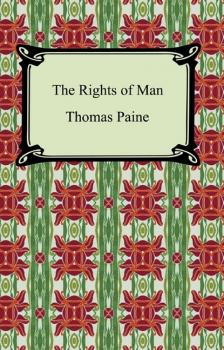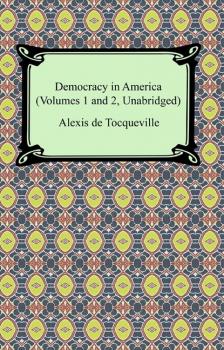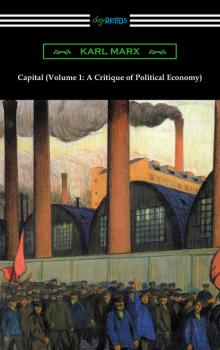Социальная психология
Различные книги в жанре Социальная психологияThe Rights of Man
A classic work of The Age of Enlightenment, «The Rights of Man» is Thomas Paine's response to Edmund Burke's «Reflections on the Revolution in France». Central to the theme of «The Rights of Man» and The Age of Enlightenment is the idea that reason should be the foundation of authority and government. A classic work of early American literature, «The Rights of Man» greatly exemplifies the philosophy that America was founded upon.
The Condition of the Working-Class in England in 1844
Friedrich Engels (1820-1895) is ranked alongside Karl Marx as one of the founders and developers of the Communist movement. Throughout his life he was active in various areas of writing, social science, political theory, and philosophy, authoring and co-authoring very significant works such as «The Communist Manifesto» with Marx. His own 1845 work, «The Condition of the Working-Class in England», was Engel's first work, written after he spent two years in Manchester working as a businessman by day and a revolutionary activist by night. The book provides a graphic illustration of the Industrial Revolution and its negative effects on mill and factory laborers. Engels drew material from his own observations and detailed reports that reflected the disease and mortality rates of workers in rural areas and large cities. This classic Victorian social criticism made Engels extremely popular in his day, and has cemented a place for him in literary, philosophical, and political history.
Leviathan
Considered by many to be among the greatest works of political philosophy, especially in the English language, «Leviathan» is Hobbes' book, published in 1651, which outlines his theories on an ideal state and its creation. The structure of a society and a legitimate government, as he reasons, is perhaps the earliest example of social contract theory, which outlines the need of rule by an absolute sovereign. In Hobbes' time, the political and social structures of England were in a changing and uncertain state, which explains to some extent his ideas on the need of a strong central government in the face of a chaotic civil war. Hobbes believes that the prospect of peace this system would provide is worth giving up some of the natural freedom of man, who is essentially a being of individual fears and desires. This brings about his discussion of dissident forces, which threaten the commonwealth, itself the monstrous Leviathan at risk of war. A continually challenging work with reasoning that has stood the test of time, «Leviathan» has in some part contributed to the advancement of the modern world.
The Discourses on Livy
A commentary on Titus Livius's (Livy's) work on Roman History, «The Discourses on Livy» is Niccolo Machiavelli's examination of the structure and benefit of the republic. Considered the most important work on the subject of republicanism in the early modern era, «The Discourses on Livy» are comprised of three books. In the first book Machiavelli discusses the internal structure of a republic. In the second book he discusses matters of warfare and in the third his attention is turned to matters of individual leadership. An important work of political history and philosophy, «The Discourses on Livy» are a must read for any student of political science.
Democracy in America (Volumes 1 and 2, Unabridged)
In 1831, the then twenty-seven year old Alexis de Tocqueville, was sent with Gustave de Beaumont to America by the French Government to study and make a report on the American prison system. Over a period of nine months the two traveled all over America making notes not only on the prison systems but on all aspects of American society and government. From these notes Tocqueville wrote «Democracy in America», an exhaustive analysis of the successes and failures of the American form of government, a republican representative democracy. Contained here are both of the unabridged volumes of that classic exposition as translated by Henry Reeve.
Democracy in America (Volume 2, Unabridged)
In 1831, the then twenty-seven year old Alexis de Tocqueville, was sent with Gustave de Beaumont to America by the French Government to study and make a report on the American prison system. Over a period of nine months the two traveled all over America making notes not only on the prison systems but on all aspects of American society and government. From these notes Tocqueville wrote «Democracy in America», an exhaustive analysis of the successes and failures of the American form of government, a republican representative democracy. Contained here is the unabridged second volume of that classic exposition as translated by Henry Reeve.
The Psychopathology of Everyday Life
In «The Psychopathology of Everyday Life» Freud examines the psychological basis for the forgetting of names and words, the misuse of words in speech and in writing, and other similiar errors. Freud's examination of the subject is extensively discussed through the use of anecdotes and examples. «The Psychopathology of Everyday Life» makes for one of Freud's more readable works. Presented here is the original english translation of A. A. Brill.
God and the State
Mikhail Bakunin (1814-1876) was a Russian revolutionary and theorist, and has often been called the father of anarchist theory. Bakunin studied philosophy, finding himself drawn to works by Fichte and Hegel, eventually converting himself entirely to Hegelianism. Bakunin gained criminal status after being deported from France – where he met George Sand, Pierre-Joseph Proudhon and Karl Marx – and later being arrested for his involvement in the Czech rebellion of 1848. His unfinished 1871 work, «God and the State», was intended to serve as the second part of a greater work called «The Knouto-Germanic Empire and the Social Revolution». It explores the psychology of the anarchist, rejects the notion of privilege or class, and wholly advocates radical revolution by rejecting all governing systems. Arguably Bakunin's most famous work, «God and the State» is an excellent read for anyone interested in political science or philosophy, particular the differences between anarchism and communism.
Anarchism and Other Essays
Lithuanian born anarchist Emma Goldman emmigrated to the United States at the age of sixteen. She first became attracted to anarchism following the Haymarket affair of 1886, a massacre in which seven police officers and an unknown number of civilians were killed during a march of striking Chicago workers. Eight anarchists were subsequently tried for murder. «Anarchism and Other Essays» is a collection of essays first published in 1911. The volume includes the following essays: Anarchism: What It Really Stands For, Minorities Versus Majorities, The Psychology of Political Violence, Prisons: A Social Crime and Failure, Patriotism: A Menace to Liberty, Francisco Ferrer and The Modern School, The Hypocrisy of Puritanism, The Traffic in Women, Woman Suffrage, The Tragedy of Woman's Emancipation, Marriage and Love, and The Drama: A Powerful Dissimenator of Radical Thought.
Capital (Volume 1: A Critique of Political Economy)
Perhaps one of the most consequential works of all time, “Capital” is the German treatise on political economy by Karl Marx that critically analyzes capitalism. First published in 1867 as the beginning of an ambitious but unfinished six-volume series, Marx would only see the first volume published in his lifetime with two more published posthumously by Friedrich Engels, this work extensively attempts to expose and explain the capitalist mode of production and the class struggles embedded within it. “Capital” was written while Marx was exiled in England, and many of the examples he uses to illustrate private property and its social relations are derived from his time there. Ultimately, this work argues that capitalism would create a divide between wealth and general welfare, and the solution was the replacement of capitalism with a system of common possession in regards to the means of production. Marx’s work gained wide readership in a very short span of time, proving highly influential in Russia, Europe, and eventually the rest of the world. Presented here in this edition is the first volume of “Capital”.









